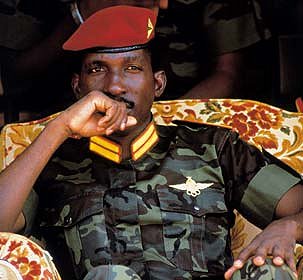Daring to invent the future

Mabasa Sasa
ON October 10, some South Africans took to the streets to protest what they called the “genocide of white people”.They roped in the likes of Steve Hofmeyr – a very popular, very misogynist, and very racist – musician and aspiring politician to sing tear-jerking tributes to the past glories of white Afrikaner masculinity.
They called their protest Red October.
Naturally, when I saw the name “Red October”, I thought this was in some way related to Bolshevism or at the very least Tom Clancy’s novel, “The Hunt for Red October”.
Instead, I discovered on their website that this was something totally different, something almost Kafkaesque in conception and intent in as far as obliterating the myth of the “Rainbow Nation” and a “post-colonial” Africa is concerned.
They declared on their site: “No longer will we be silent about the oppression of the White South African Ethnic Minority! No longer will we silently endure the killing of our people on our farms and in our towns and cities.”
They further lamented the “destruction of our infrastructure; our filthy government hospitals; our pathetic educational system; dangerous neighbourhoods; and a disintegrating road network”.
A genocide of white South Africans? A pathetic education system? Crime? Infrastructure?
Last I checked, a black South African is more likely to be a murder victim than any other ethnic group.
A 2013 AfricaCheck report says 87 percent of murder victims are black and two percent are white.
Further, the census a couple of years back indicated that white households earn six times as much as black ones.
As for schooling, perhaps these endangered white folk could help dismantle the vestiges of Bantu education. And we all know that when it comes to infrastructure, they are just bitter that their own needs, as a white minority, no longer have primacy to those of a black majority that was for 300 years kept on the fringe of society and development.
Christi van der Westhuizen, embarrassed by the actions of her colleagues – a group she refers to as a “lunatic fringe” – says it all boils down to the sense of entitlement that has been built into the white psyche by centuries of an individualistic economic, political and cultural outlook that places those of fairer skin right at the apex of creation: somewhere next to or above God. She says of them: “They don’t only want to be on top – they want everybody else to be happy with them on top.” But they are not a “lunatic fringe”.
Rather, they represent a deep-seated, very powerful, well-educated and immensely wealthy clique that will not rest until it restores white privilege to where they believe it should be in the scheme of things.
These are the same people who, in this same month of Red October, on the 19th in 1986 to be precise, murdered Samora Machel because they recognised the threat that he posed to their way of life.
They are the same ones, on the 15th of Red October in 1987, spurred Blaise Compaore, to order the murder of Thomas Sankara. And it is Thomas Sankara who provides us with one of the best models for tackling white privilege. Sankara is the man who opposed borrowing from the IMF and the World Bank.
He is the man who preached the gospel of economic empowerment; who invested in local food and textile production; who clamped down on male chauvinism and ensured women were treated equally with men; who pushed forward literacy programmes and healthcare provision; who tackled corruption and paid himself a monthly salary of just US$450; and who built railways, roads and houses for the poor.
Sankara was determined to not only crush white privilege, but also more importantly to create universal equality. In 1984, he had changed the country’s name from Upper Volta to Burkina Faso, which inspiringly means “The Land of Upright People”.
Expounding on his political philosophy in 1985, Sankara said: “You cannot carry out fundamental change without a certain amount of madness.
“In this case, it comes from non conformity, the courage to turn your back on the old formulas, the courage to invent the future. It took the madmen of yesterday for us to be able to act with extreme clarity today. I want to be one of those madmen. We must dare to invent the future.”
The white folk of Red October are doing what they are doing today because their forebears dared to invent a future to their liking.
So, in as much as we will be appalled at the sense of entitlement that these have, we too should dare to invent a future that we feel we are entitled to. – Southern Times








Comments